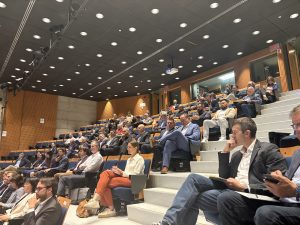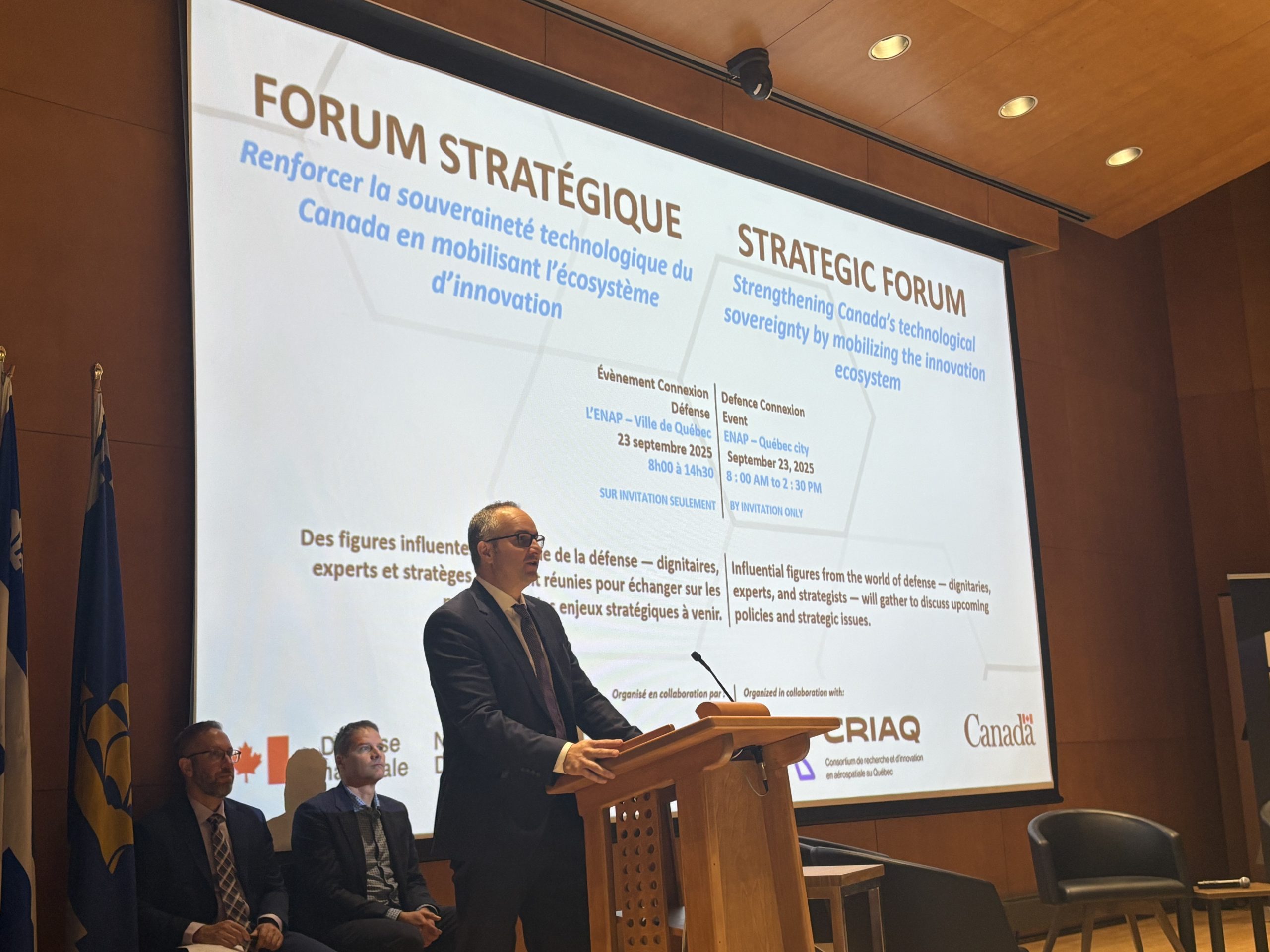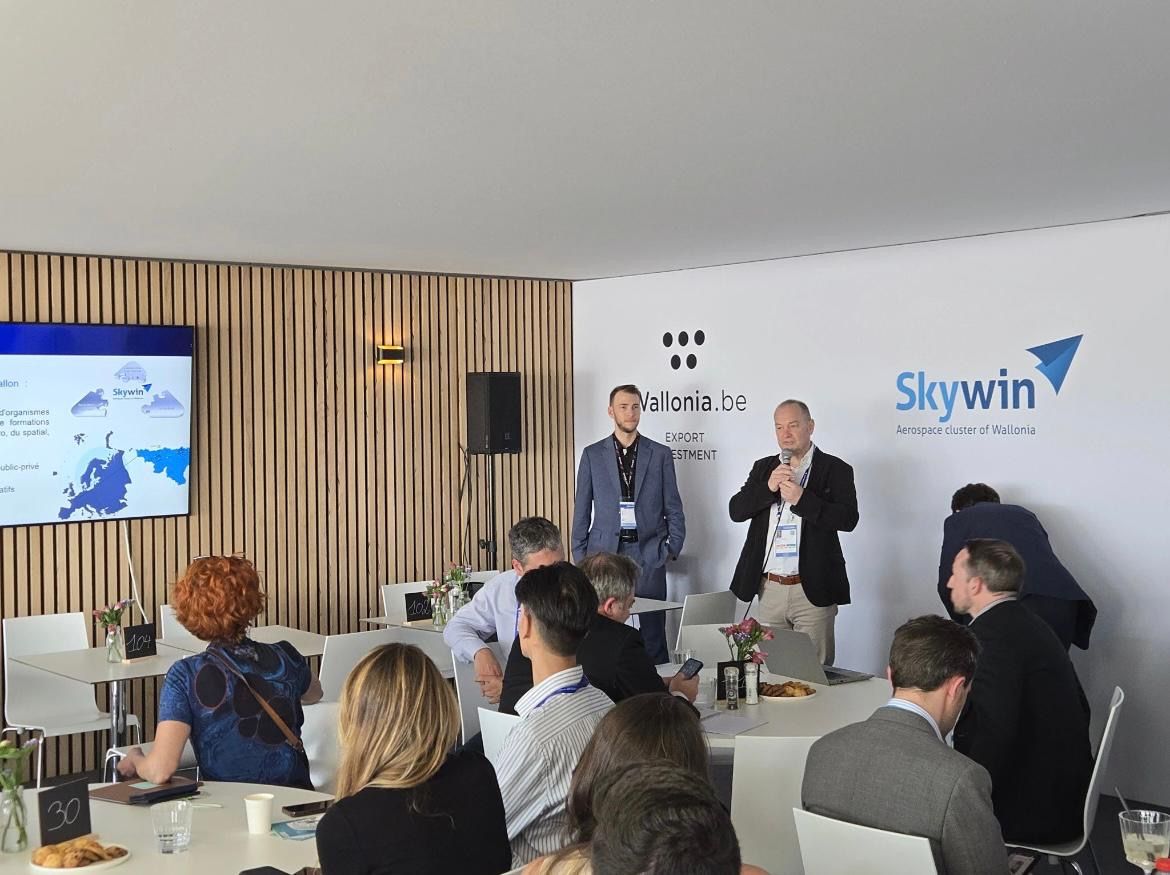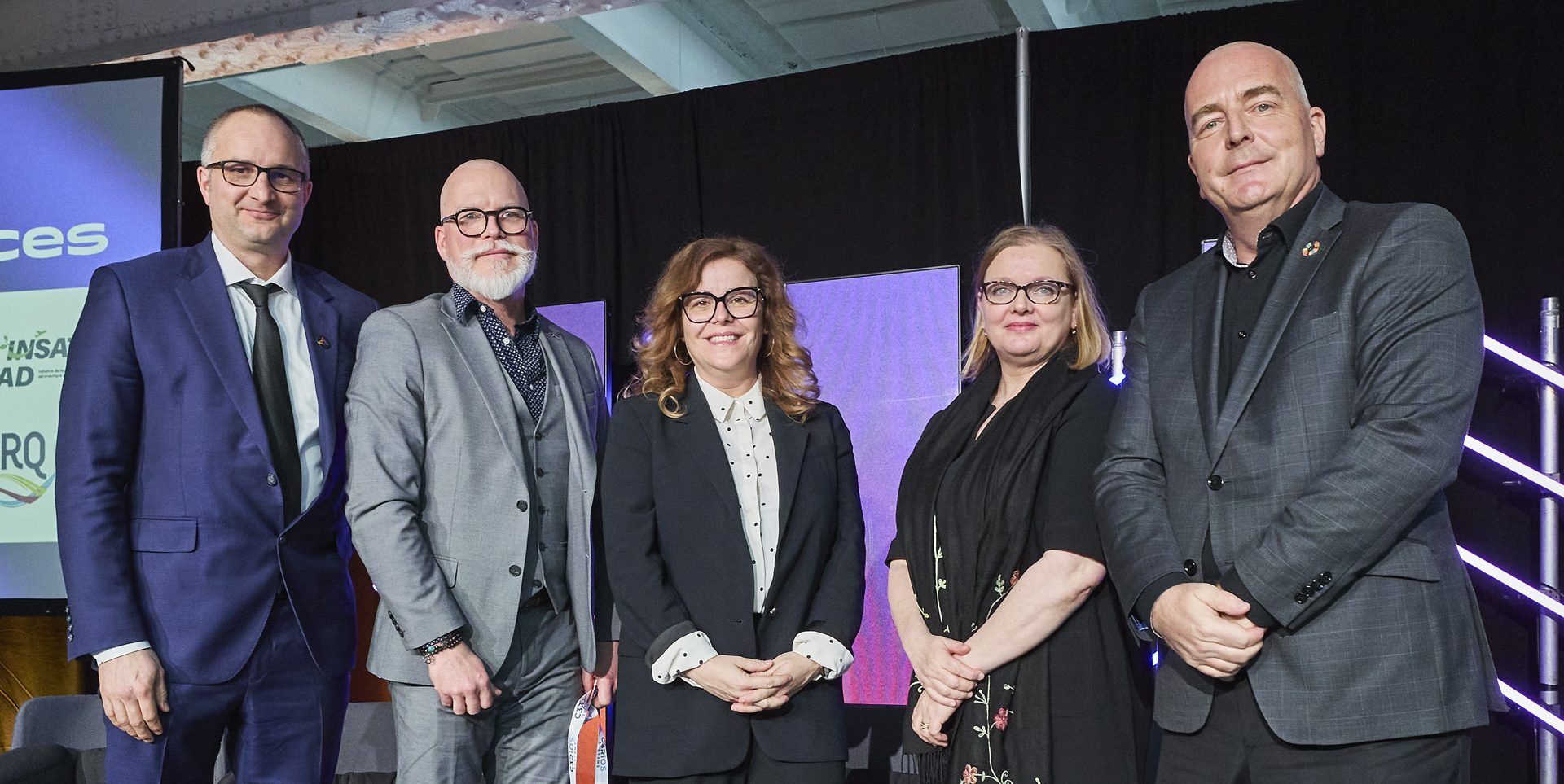
The Consortium for Research and Innovation in Aerospace in Québec (CRIAQ) and the Institut national de la recherche scientifique (INRS), in partnership with the Department of National Defence (DND), organized the Connexion Défense strategic forum, held in Québec City on September 23. The event aimed to mobilize the innovation ecosystem to strengthen Canada’s technological sovereignty.
Around one hundred specialists from the industrial, academic, governmental, and nonprofit sectors took part in this day of exchanges. Several key themes were discussed, including drones, advanced materials, critical minerals, artificial intelligence, cybersecurity, and quantum technologies.
First, DND and Defence Research and Development Canada (DRDC) presented the key elements of the upcoming defence industrial strategy, which pursues three main objectives:
-
Better meeting the needs of the Canadian Armed Forces (CAF)
-
Building an innovative and resilient industrial ecosystem
-
Strengthening strategic partnerships
INRS showcased its expertise in photonics, quantum technologies, cybersecurity, and telecommunications, while the joint research unit (UMR) project on dual-use technologies illustrated a collaborative approach with multiple partners.
The Regroupements sectoriels de recherche industrielle (RSRIs) — CRIAQ, PRIMA, CRITM, and PROMPT — highlighted how their member networks support R&D and innovation in their respective strategic sectors: aerospace, advanced materials, metal transformation, and digital technologies.
The event also showcased the potential of the drone industry to address defence needs. Companies Laflamme Aéro and ARA Robotics presented their innovations, while the Centre d’excellence sur les drones (CED) and the SDG Innovation Network discussed challenges related to production, testing, and training in Canada.
Industrial research laboratories — the Digital and Quantum Innovation Platform (PINQ²), the National Optics Institute (INO), and the MiQro Innovation Collaborative Centre (C2MI) — shared their unique expertise in quantum science, optics-photonics, and microelectronics, underlining the importance of supporting industrial innovation laboratories (RTOs).
Finally, three digital technology leaders presented their work in artificial intelligence: the Computer Research Institute of Montréal (CRIM) on critical AI systems, Cognitive Group on human factors and pilot training, and Beslogic on software development.
This initiative is part of the federal government’s new ambitions in defence and security.



